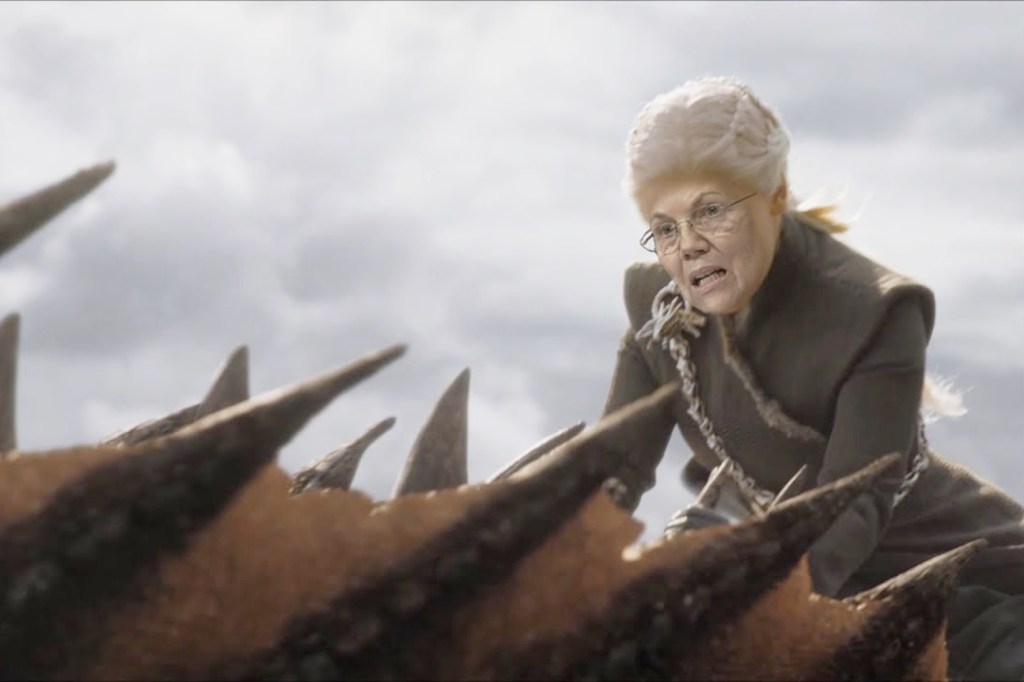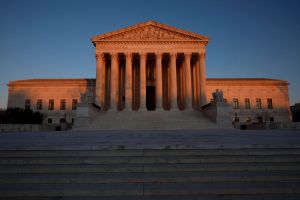In the 2020 primary, you win or you die. That’s the subtext of a new essay in The Cut by Democratic presidential hopeful Elizabeth Warren, entitled ‘The World Needs Fewer Cersei Lannisters.’
Liz has had a few headline-grabbing moments over the last few days. She issued a renewed call for Trump’s impeachment following the release of the redacted Mueller report. Now she’s piggy-backing off the hype around the biggest show in the world, writing episode reviews for New York magazine’s women’s site. Cockburn supposes they have to plug the holes left by those layoffs somehow.
– Game of Thrones spoilers below –
So who is Sen. Warren’s favorite character on the show? You could be forgiven for assuming it was Jon Snow: a reluctant warrior reared in the North, who last week learned his ancestry had destined him for the highest office in the land (Jon is more than 1/1024th Targaryen, however). But no: Warren is after the women’s vote, and so it’s Jon’s aunt-girlfriend Daenerys Targaryen that she most empathizes with.
‘Despite being the daughter of the Mad King and the last rightful Targaryen heir to the Iron Throne (until this week), Dany didn’t grow up in the lavish palace walls of the Red Keep. She was born during the chaos of her father’s overthrow, in the last great civil war between the rich and powerful family houses. Dany grew up in exile, wandering the so-called Free Cities of the East – many of which weren’t free at all but propped up by slave markets to serve their masters…Dany believes fiercely in her right to rule, but she despises what ruling means in the world she’s grown up in. She doesn’t want to be a slave owner or a dictator – and she definitely doesn’t want to become her murderous father.’
A princess who believes fiercely in her right to rule, who didn’t grow up within lavish palace walls…props to the Warren staffer who came up with that parallel. Naturally the Massachusetts senator has chosen to gloss over the less savory aspects of Daenerys’s character, such as her fulfillment of the ‘white savior’ trope which weaklings on Reddit seem to care about a lot. There’s also the small matter that this week’s episode brought Daenerys into conflict with characters who weren’t so ready to submit to her rule: first Sansa, then Jon. Warren may insist that the Dragon Queen is not like her ‘murderous father’ – as Tyrion also claimed this week – but it seems like the show may be readying her for a journey down that arc. Get ready for a Warren walk-back if that happens.
Warren continues not-so-subtly drawing the comparison between herself and Daenerys in the next paragraph:
‘A queen who declares that she doesn’t serve the interests of the rich and powerful? A ruler who doesn’t want to control the political system but to break the system as it is known? It’s no wonder that the people she meets in Westeros are skeptical. Skeptical, because they’ve seen another kind of woman on the Iron Throne: the villain we love to hate, Queen Cersei of Casterly Rock.’
Is it a stretch to consider this a dig at Hillary Clinton? Cockburn doesn’t think so: another of the main criticisms of the Warren campaign is their failure to demonstrate her differences from the woman who lost last time. Deploying the HBO smash in allegorical fashion is far from beyond them.
The essay concludes:
‘We’ve got five episodes to find out if the people can truly break their chains, destroy the wheel, and rise up together to win.’





















